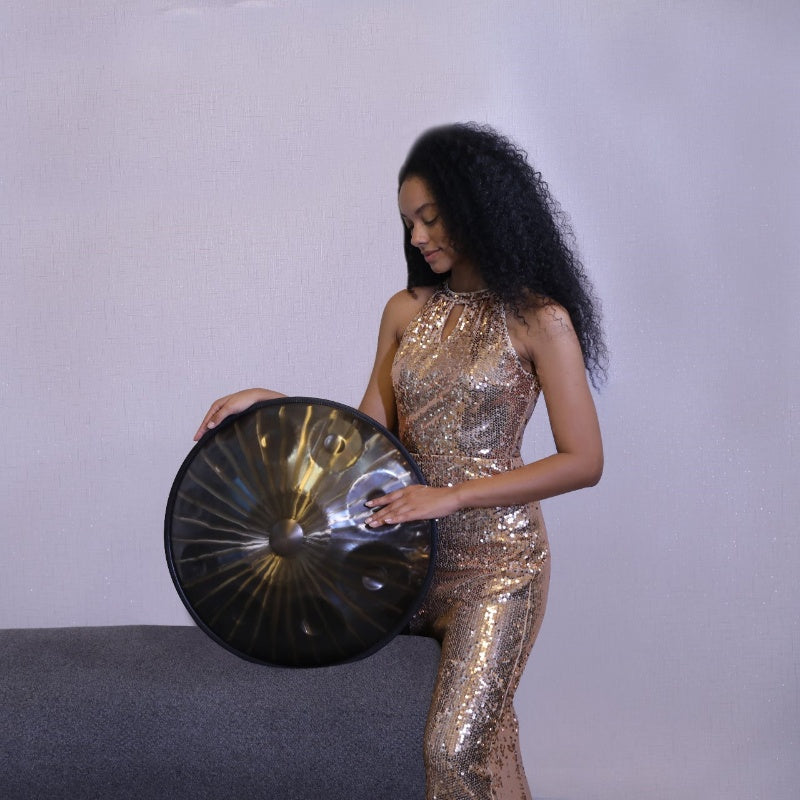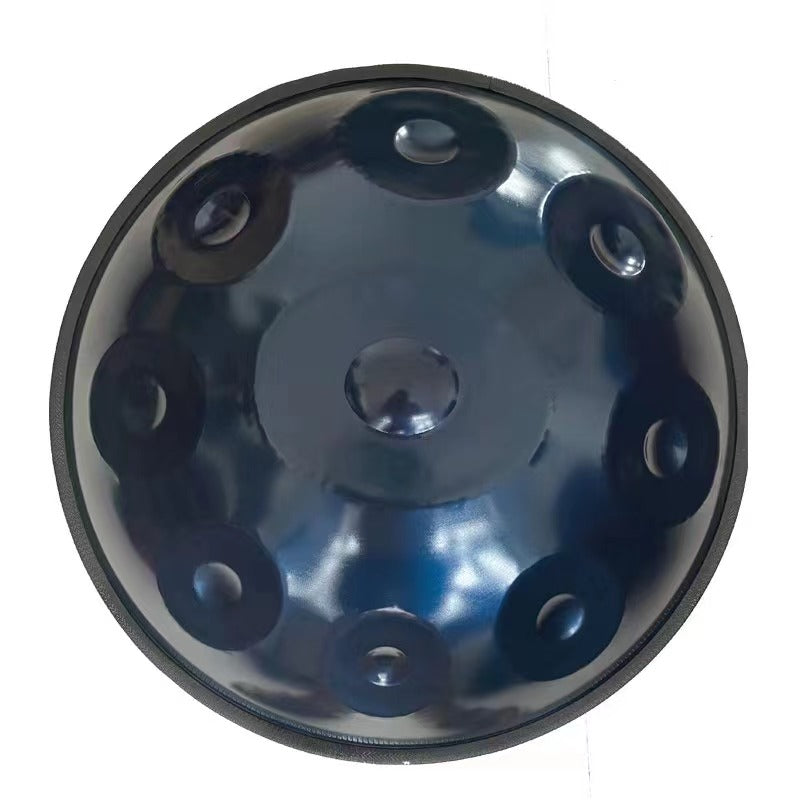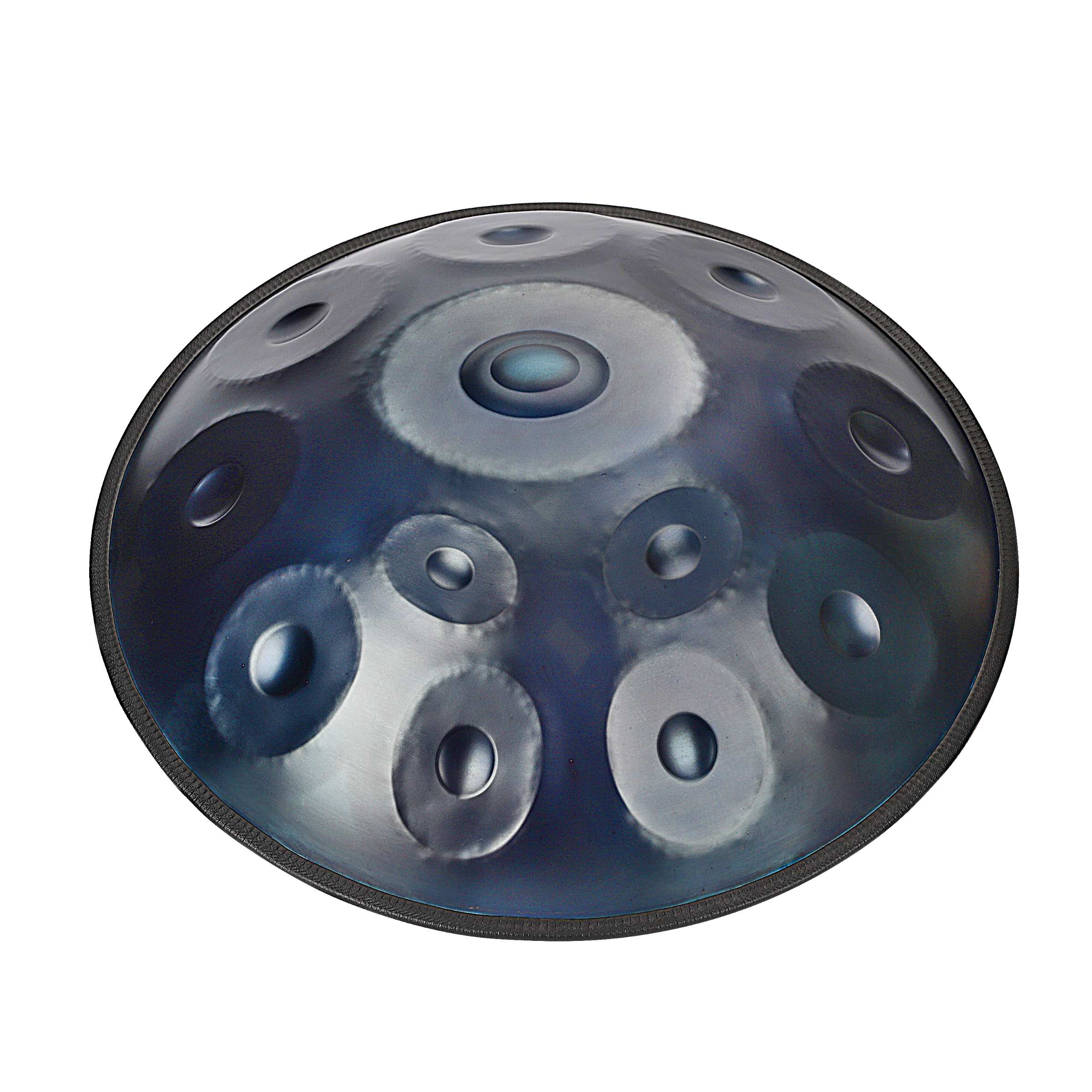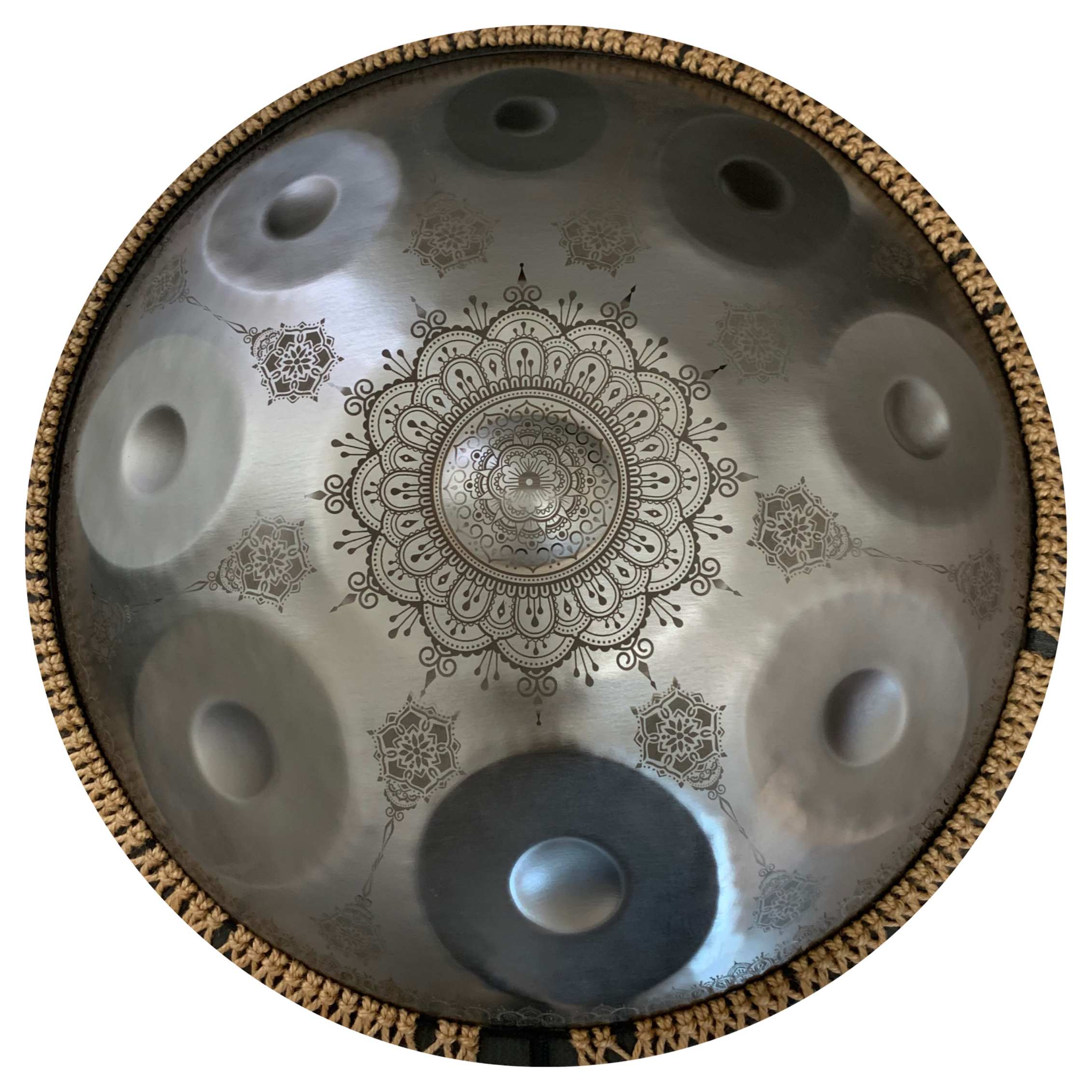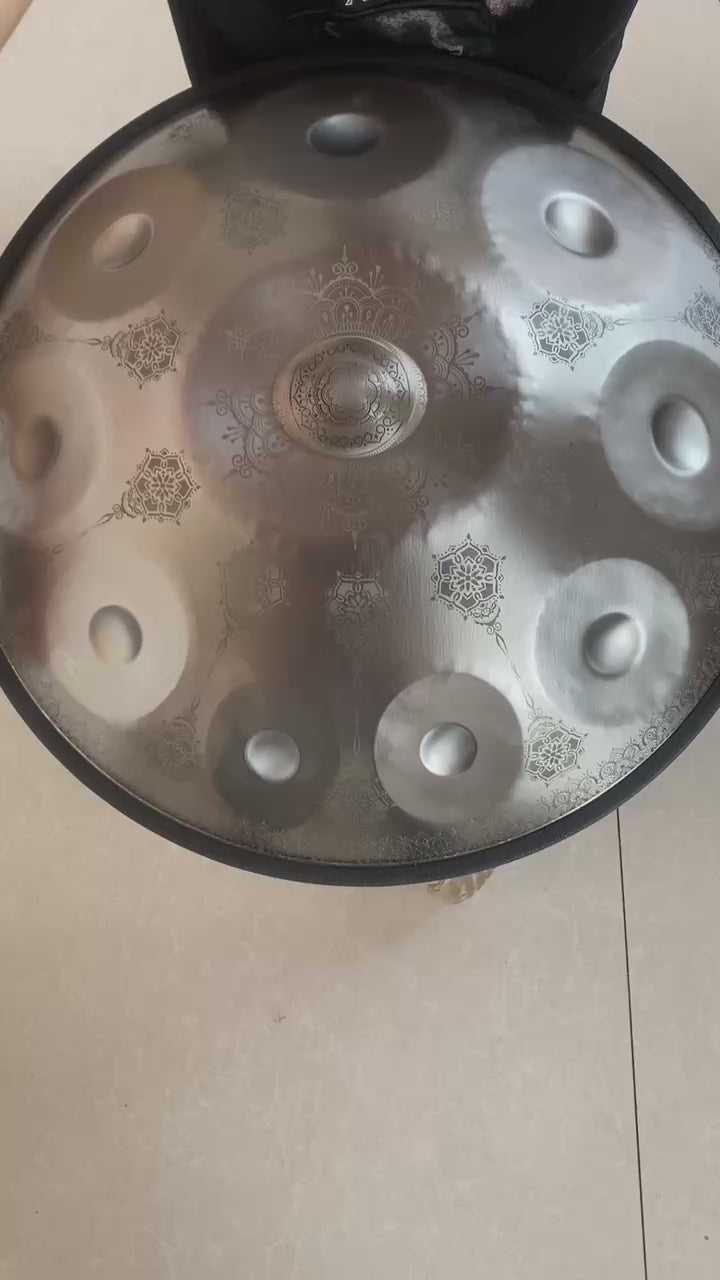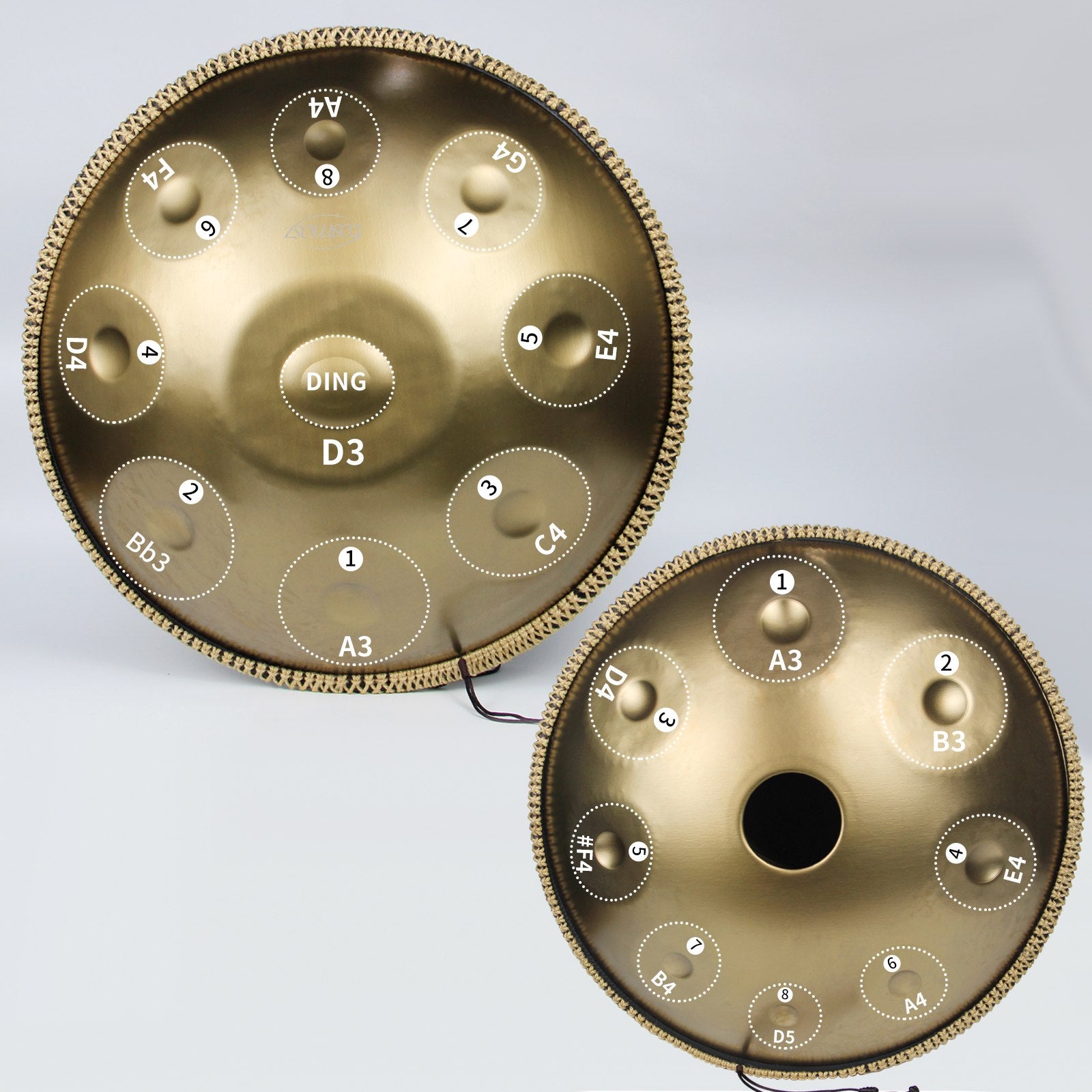
Handpan drum—or handpan steel drum or hanging instrument—is famous for its tuneful, soothing tones and is often called a ‘singing bowl’ because of its sound. Deciding on the right scale for newbies to the handpan musical instrument is one of the most exciting and daunting decisions. For new players, the scale is the make-or-break for the instrument’s mood, versatility, and overall playing experience.
Understanding Handpan Scales
A handpan’s scale means what notes it provides, including the heart note/ding and the surrounding fields. They are often designed to create certain moods, for example, introspective and melancholic, to more uplifting and joyous. In selecting a scale for beginners, their musical goal, emotional preference, or skill level should be used as a guide.
Handpan Scales for Beginners
Minor Scale (Amara)
Minor scale, also called Amara, is most of the time a favorite for the beginners. Emotional depth, just enough to allow introspection, to express sorrow, and to believe in the sun after the rain. It’s all about versatility; that makes it ideal for getting to know many playing techniques and styles.
Common Notes: Begin on the D, D, A, C, D, E, F, G, A, C.
Kurd Scale
Harmonious, compatible, uplifting, and melancholic tones make it a good choice for folk-inspired music. It is a balanced mood, which permits the beginners to make both happy and reflective compositions.
Common Notes: D, A, Bb, C, D, E, F A
Hijaz Scale
For those who love the sound of exotic and mystical-sounding modalities, the Hijaz scale gives you a flavor not able to be achieved in the other modalities. Borrowed Middle Eastern music, it has interesting dissonances and is quite dramatic yet is appropriate for adventurous beginners.
Common Notes: D (Ding), A, Bb, C#, D, E, F, G, A
Choosing a Scale For Hang Instrument
Emotional Connection
The first thing to do is decide what you’re going to be expressing through your playing and choose a scale. If you’re going for something introspective that helps soothe the mind, or upbeat and energetic to get people in a good mood, do you use classical guitar or Bossa Nova? You can listen to sound samples of different scales to see which one or more of them resonate with you.
Musical Goals
Think about what you want to do as a musician. Do you want to play solo, meditative pieces, or do you want another musician to play on top of you? The minor or Kurd scales are great for a variety of genres, so they can help you kill many birds with one stone.
Versatility
Versatility is important to beginners. If your journey of learning remains engaging, you will stick to a scale that lets you explore different moods and styles. The minor scale, it is often suggested, is apt to suit a number of playing techniques and musical contexts.
Practical Tips For Handpan Drum Steel Drum
Start Simple
So as a new player, if you start with a simple scale, you focus on mastering basic techniques. The more scales that have fewer notes, like 7-note configurations, are easier to navigate, preventing one from becoming overwhelmed.
Seek Guidance
If you don't know what scale to choose, you can ask the advice of experienced players, handpan communities, and the instrument maker. After accessing their account profiles, they can give you worthwhile insights based on your preferences and goals.
Test the Instrument
Try playing the handpan whenever possible before making a purchase. Getting your hands on the instrument itself can provide a more meaningful sense of the instrument’s scale, resonance, and, in some sense, 'playability.'
In order to play hard in your playing environment, you have to match the scale to it.
Solo Playing
Minor and Hijaz are great hijazi scales to play solo. With their rich tonal range, you don’t even need additional accompaniment in order to generate fascinating compositions.
Collaborative Playing
If you are going to play with other people, then think about scales that go nicely with the guitar or piano. The Kurds, though versatile with a good combination of performance and solid, appear to play well in collaborative settings.
Balancing Cost and Quality
The price of the handpan, too, can depend on the scale you select. Beginner-friendly scales and a well-crafted instrument are what beginners should aim for. Professional handpans are quite expensive, but you can get a nice one while keeping it within your price range that remains well-tuned.
Conclusion
Deciding what scale to have in your first handpan musical instrument is a personal, exciting decision. Now the key is knowing the popular scales, keeping its goals in mind, and test-playing the instrument to find the most perfect scale that suits our emotions and aspirations. Whichever minor scale you’re attracted to, the Kurd scale is your plaything, or the Hijaz scale is your magic; your trip with the handpan drum will be a grassy path of sound and creative expression.

